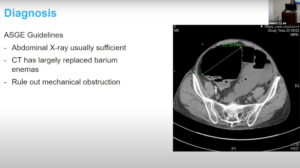NEW YORK (Reuters Health) – In patients with ulcerative colitis (UC) and primary sclerosing cholangitis (PSC), high doses of ursodeoxycholic acid (UDCA) are associated with an increased risk of colorectal neoplasia, researchers report in a May 10th on-line paper in the American Journal of Gastroenterology.
“We were surprised at our findings with the high dose of UDCA,” Dr. Keith Lindor told Reuters Health by email, “especially since lower doses of UDCA have been proposed to reduce the risk of colorectal neoplasia in patients with PSC and colitis.”
“This result was comparable to the unexpected result from the main study,” he added, “in which high doses of UDCA were associated with more frequent adverse liver outcomes.”
In the current follow-up study, Dr. Lindor of the Mayo Clinic College of Medicine, Rochester, Minnesota and colleagues compared 25 patients who received treatment with UDCA (28–30 mg/kg/day) with 31 who received placebo. They were part of an earlier study investigating the utility of high-dose UDCA in treatment of PSC.
They were followed for 235 patient-years. The mean duration of follow-up and drug use was around 4 years. A total of 12 patients developed colorectal neoplasia (dysplasia and cancer) during follow-up. Of these, 9 were in the UDCA group.
Patients receiving UDCA were thus at significantly increased risk of developing colorectal neoplasia (hazard ratio, 4.44). This remained the case after adjustment for smoking history and UC duration.
There is no alternative to UDCA, but Dr Lindor concluded that UDCA doses beyond 28 mg/kg/day are not “supported for treatment by any evidence at this time.”
Am J Gastroenterol 2011.




